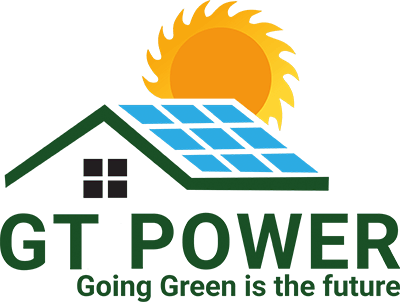
How do solar panels work? Well, solar panels take sunlight and turn it into reliable energy for your home. But are you wondering about the nitty gritty?
From calculating peak sun hours to understanding inverters, let’s answer some tough questions and break down how solar panels churn out solar energy.
Here’s the quick version:
Remember photons from science class? They’re the tiny particles of electromagnetic (or light) energy that travel to Earth in rays of sunshine. Solar panels work when the solar cells inside of them are hit by the photons inside of a beam of sunlight.
Once the photons jostle the electrons inside your solar cells, it causes them to flow through an electrical current. All of that movement generates some pretty powerful electricity for your home.
That’s the short answer, but let’s dive deeper and find out more about how solar panels really work.
Once the panels get a taste of sunlight, they’re activated. If you live in one of the sunniest cities in the U.S., you’ve got a rich supply of solar energy just waiting to be soaked up and converted into electricity. Solar cells absorb sunlight during the day, which begs the question…
Believe it or not: solar panels can work on cloudy days, but they work at their best when blasted with a bit of direct sunlight. According to EnergySage, “…solar panels will generate about 10 – 25% of their normal power output on a cloudy day.” However, they work at their best when blasted with lots of direct sunlight.
To get the most out of your solar system, it might be a good idea to calculate your peak sun hours to know when your panels are producing energy at their max. Remember: any form of sunlight can be absorbed. Whether it’s direct or indirect, sunlight will still power your solar panels.If you want to help offset overcast or cloudy times, you could get a solar panel battery to store energy captured by your solar panels when the sun is shining brightly.
Photovoltaic (PV) solar panels are made up of silicon, glass, a metal frame, and wires. The solar cells are constructed to create a positive layer and a negative one with the silicon. This creates an electric field and once those electrons get to moving, electricity is generated. The panels are arranged together in ordered series, called arrays. The larger the array, the more electricity they will produce.
For more information about silicone as a semiconductor of electricity, check out this article.
If you’re asking, “How do solar panels work?” chances are, you want to know how solar can work for you. The sun is full of clean, renewable energy just waiting to be converted. But solar panels are only the first step in home energy efficiency.
Solar panels generate direct current (DC) electricity. Most homes and electrical grids run on alternating current (AC) electricity. A device called an inverter is needed to transform DC electricity into AC electricity.
Solar inverters like the Enphase IQ8 Microinverter (one of our favorites) can change DC power into AC power reliably and efficiently. This makes adapting your home for solar as seamless as using electricity from the utility grid.
However, grid failures and rolling blackouts have become more prevalent. Solar panels and a solar battery backup offer one solution.
One of the best ways to use solar panels during a power outage is to have a solar panel battery. A solar panel battery will help fortify your home against blackouts and relieve some pressure off of the grid. It works in conjunction with your solar panel installation and helps to keep the power on at your house.
Moreover, a solar panel battery is a safe way to protect your home from power outages, unlike generators. Solar panels need a battery to store your excess energy to use. If your solar panels are still active and connected to the grid during a blackout, an electrical current could surge through the power lines and harm the utility workers who are working to get the power back on. Only a solar battery, like the resilient Enphase, will store the energy from your panels and activate your grid independence when you need it the most. How long do solar batteries last? Check out some of these benefits:
In conclusion, solar panels work for your home by absorbing the sun’s photons and generating a direct current. This current is transformed into an alternating current by your inverter and used to power your home.
Still thinking about how solar could work for your home? Get a free quote for solar panel installation today!
